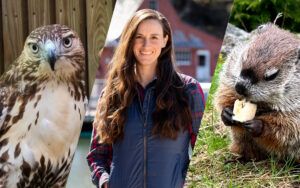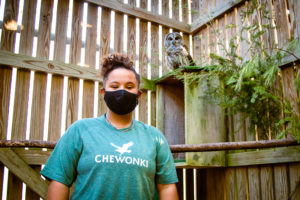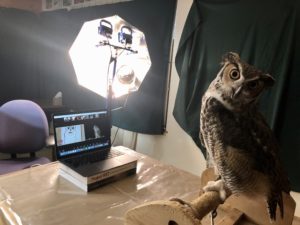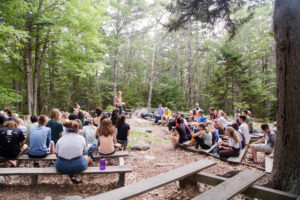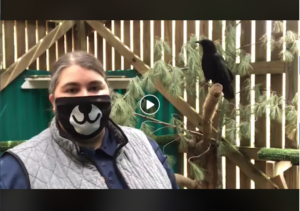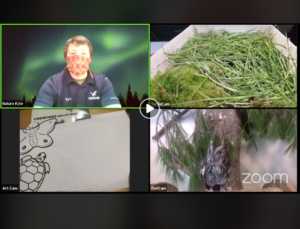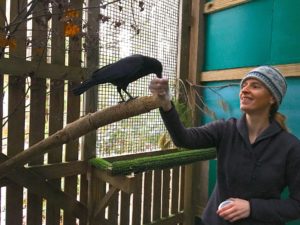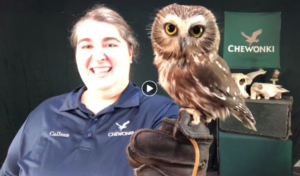On a cold, windy day earlier this year a small crowd watched curiously as Chewonki Science Educator Jessica Woodend, along with her husband, struggled to lift a seventy-pound harp seal into a large crate. Earlier, a passerby had noticed the seal alone and dehydrated, prompting a call to the Marine Mammals of Maine (MMoME) response hotline. Woodend and her husband quickly responded, and after a few tense minutes (“you can never seem to park close enough,” laughs Woodend), the pair managed to crate the seal, sled it across the uneven coastline, and safely lift it into the back of the Woodends’ SUV. Soon, they were zipping to the MMoME rehabilitation facility in Brunswick.
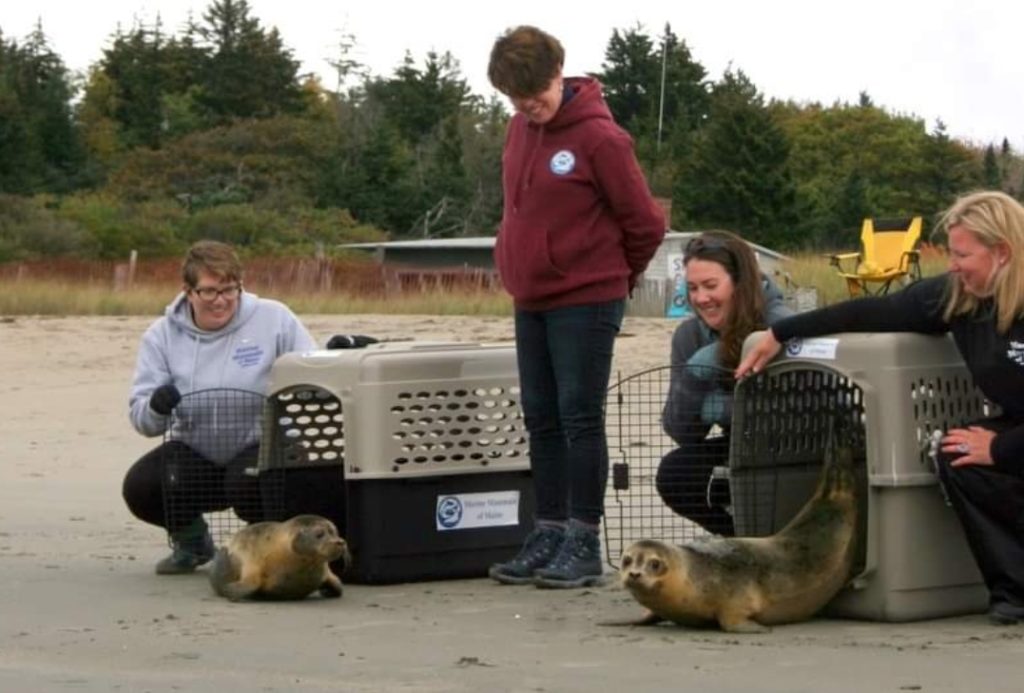
For Woodend, this unusual scene is just another day as an MMoME volunteer. Founded in 2012, MMoME provides expert stranding response across 2,500 miles of Maine’s coastline (including islands), from Kittery to Rockland. They also conduct research and education programs. Woodend, a passionate wildlife educator and long-time member of our Traveling Natural History team, first learned about MMoME during a 5K fundraising run hosted by the organization. She was quickly hooked.
“It’s essential to support seal populations because they are a keystone species of the ocean,” says Woodend. MMoME is the only organization in southern and midcoast Maine doing on-the-ground emergency response and rehabilitation.
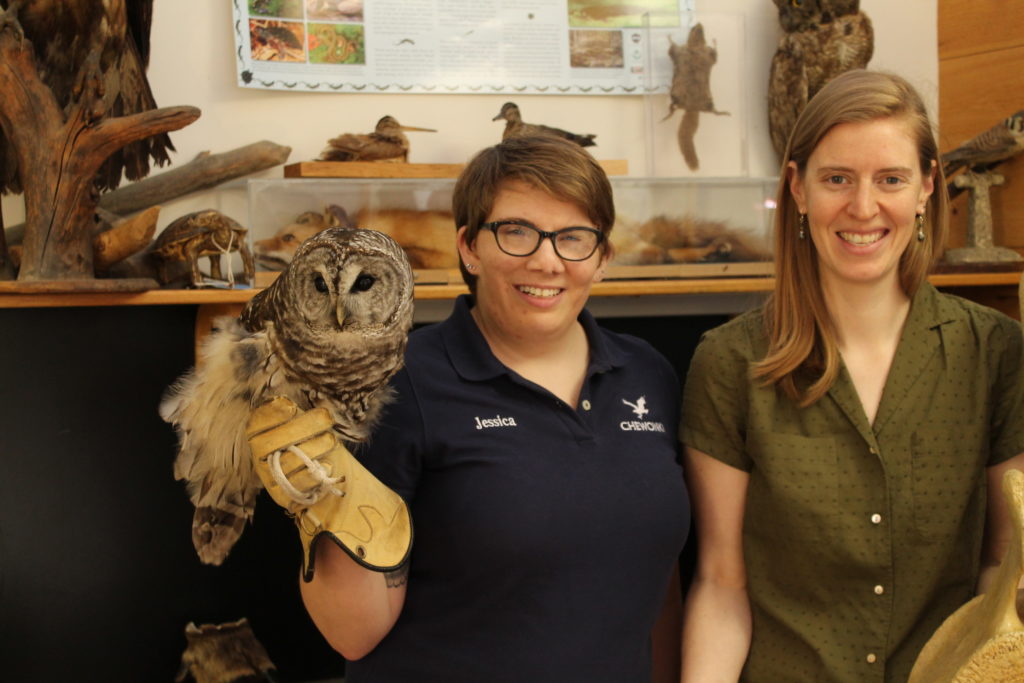
Additionally, Woodend explains that most incidents are the result of human interaction. For example, mother seals are known to abandon their pups if they see a human has come close to it, and injuries often result from human-made ghost nets and pollution. “It’s important to help because we are the ones causing some of these issues,” says Woodend.
“There’s a lot of misconceptions about these animals,” Woodend continues. “For example, many people don’t realize seals are semi-aquatic, meaning they don’t need to be in the water.” People also misinterpret their stress responses. “A waving flipper isn’t a friendly hello,” says Woodend, “it’s a warning to stay back.”
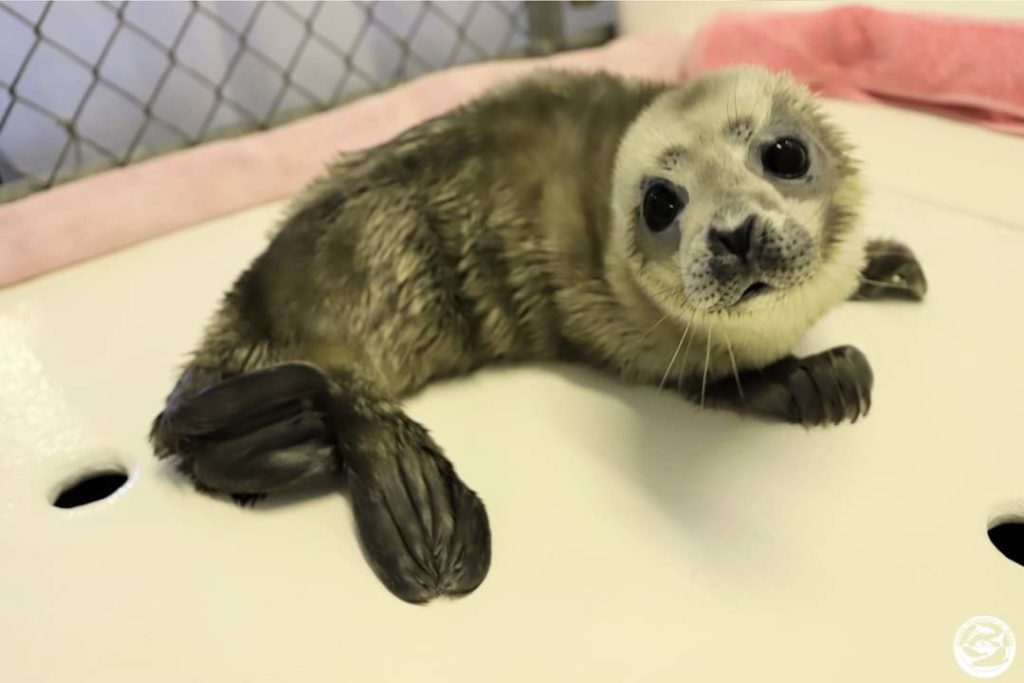
When Woodend first began volunteering with MMoME, they needed help getting the word out about their work. Their core team had experience in animal care and rescues, but education could help them reduce the number of incidents that occur in the first place. Woodend used the skills she’d honed at Chewonki to develop a presentation that volunteers and interns could deliver in libraries and other venues. “We go over the basics of marine mammals, how the organization works, and conduct a mock rescue. Kids come up and measure a stuffed toy seal so they can be scientists,” says Woodend.
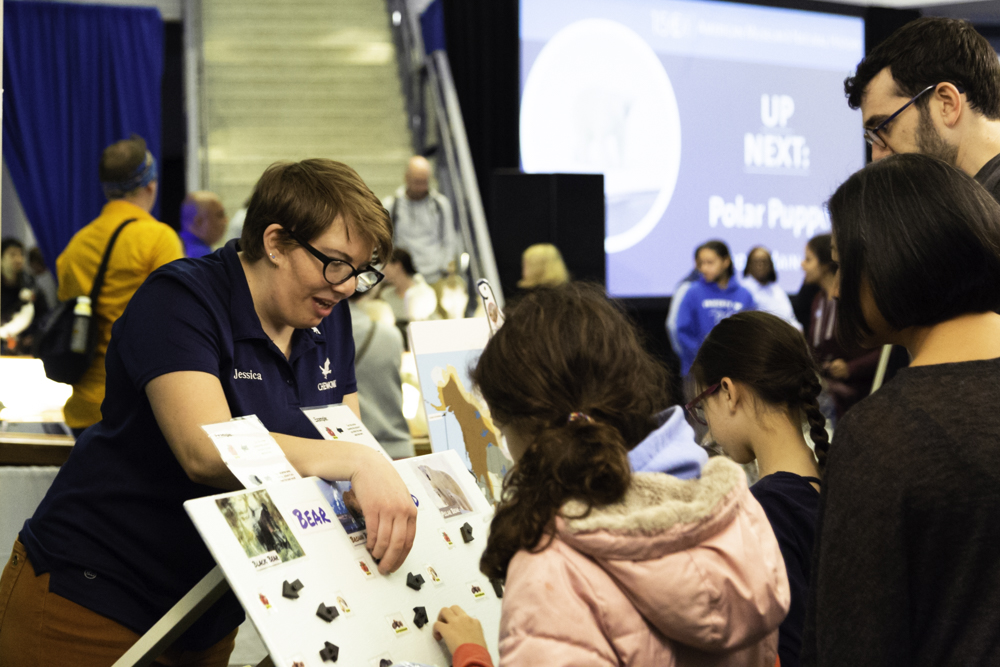
After several months, Woodend found herself wanting to be more involved and asked if she could help with the animal care. She started visiting the center a few times a week to help with cleaning, food prep, and feeding. joined their response team, too, and helps cover the Bath, Brunswick, Phippsburg, and Harpswell area.
“It’s definitely become a big time commitment, but it’s so rewarding, even when it’s hard,” says Woodend. Each week she indicates when she’s available to respond to incidents and care for animals at the center. Since the Traveling Natural History program has been traveling less due to the pandemic (many of our presentations are virtual these days), Woodend says the balance is a bit easier.
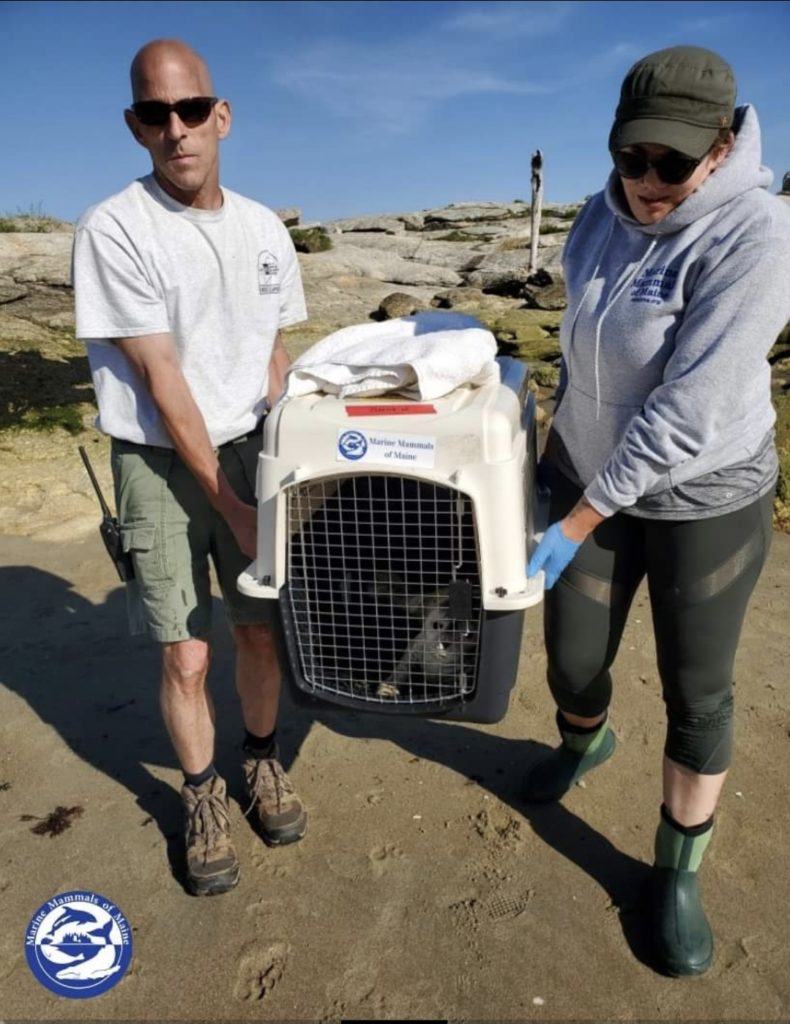
Incidents tend to peak in the spring (right around now) when new seal pups are born. MMoME operates a 24-hour hotline where people can report unusual behavior. Not all incidents require intervention, though. Seal pups are often left along the coast for short periods while the mother hunts, so a response might begin with monitoring to ensure its mother returns. Volunteers only move an older animal when it’s in a dangerous situation (like being too close to a crowded beach), or it’s sick or injured.
When a seal arrives at the MMoME facility in Brunswick, it is usually given fluids and placed in a dry pool. Pups don’t yet have the blubber to survive in cold water and need to learn how to hunt. “We start by feeding them formula, and eventually graduate them to thawed fish to get them used to swallowing fish whole,” says Woodend. Slowly, over several months, the seals build up the strength and skills to survive in the ocean.
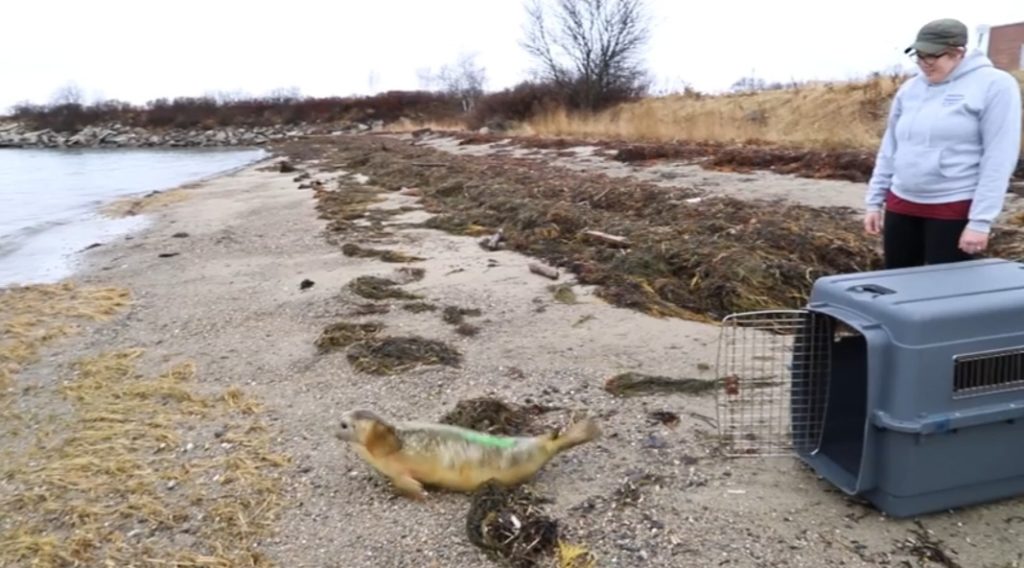
The harp seal rescued by Woodend and her husband in Phippsburg was lucky to have a short visit. “It was on the verge of severe dehydration,” says Woodened. “Seals hydrate by eating snow and ice and in this case, there wasn’t much around,” she explains. Seals will also have a stress response when people get too close and eat whatever is around them, usually sand and rocks, which makes them sick. After its assessment, however, the MMoME team determined the harp seal had good body condition and just needed fluids and rest. After a few days, it was successfully released back into the ocean so it can travel to Canada for the summer.
“Although MMoME tries their best we can’t save every animal.” says Woodend. Some seals never recover. Every release is a cause for celebration.
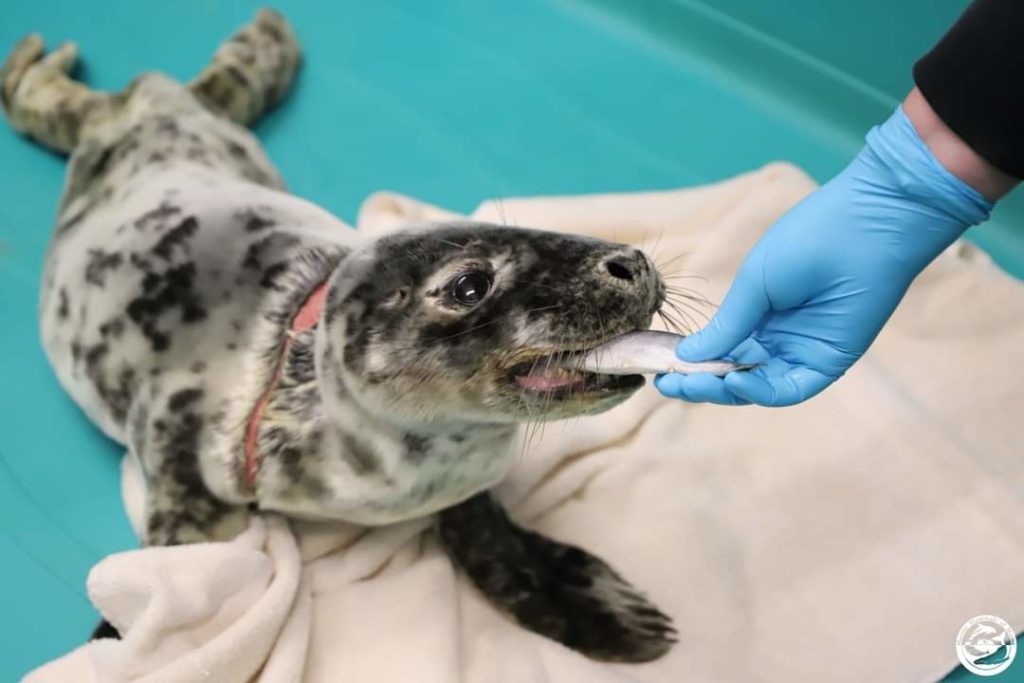
“Working with MMoME has made me a more well-rounded person. It’s boosted my confidence and given me skills that I use at Chewonki, like the ability to recognize stress and give fluids.” People often recognize her from her role with our Traveling Natural History Program, and she hopes that building on these connections will inspire others to get more involved in conservation work.
“MMoME is doing important work that contributes to scientific research studies across the country,” says Woodend, “there would be a lot more animals suffering if they weren’t around.” We applaud Jess for her passion and dedication to her work and her commitment to a more sustainable future.
